CPU
Latest
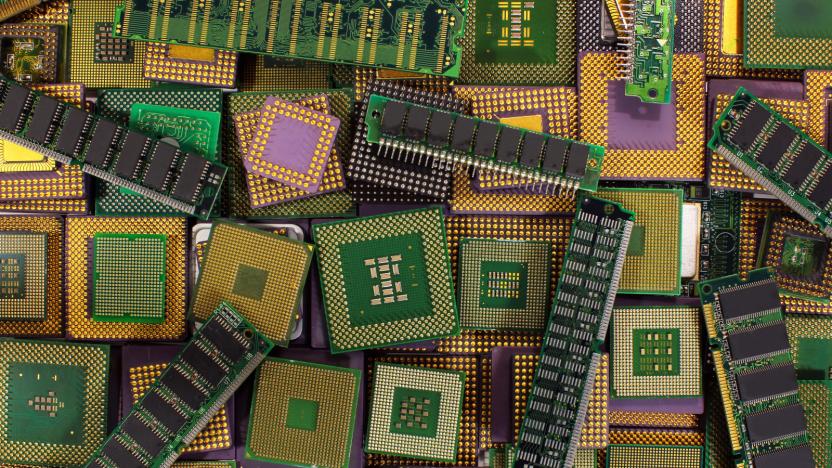
AMD is deploying a patch for the second Spectre CPU vulnerability
While Intel is at the center of the Spectre/Meltdown fiasco, AMD's chips are also affected by the CPU vulnerabilities. The company previously said that the risk of exploit using variant 2 was near zero due to its chips' architecture. But in its latest announcement, it said that because both variants are still "applicable to AMD processors," it also plans to release patches for the second variant to be absolutely safe. AMD already provided PC manufacturers its fix for the first Spectre version, and Microsoft has begun rolling it out. The chipmaker also said it's working with Redmond to address a problem that delayed the distribution of patches for its older processors.
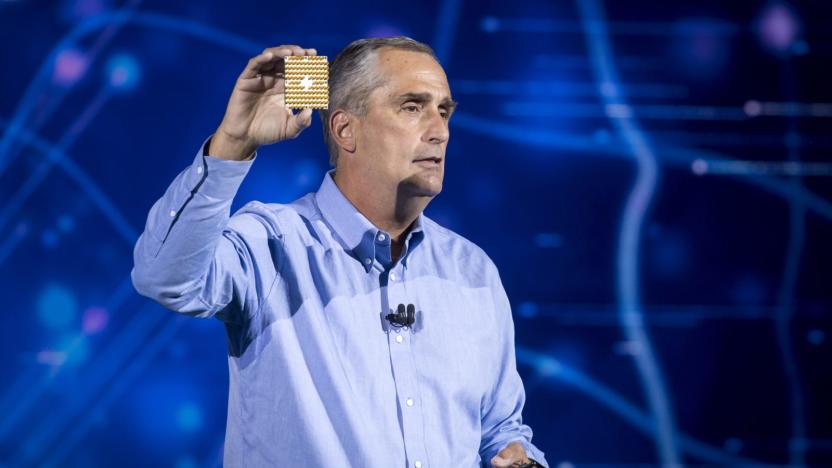
Intel pledges transparency after Spectre, Meltdown vulnerability
The last week or so has seen a lot of activity around Meltdown and Spectre, two CPU flaws in modern chips from the likes of AMD and Intel. Apple, Microsoft and Google have provided interim fixes for their respective hardware, but it will take much more than simple patches (that can cause more harm than good) to truly eradicate the issue. Just a few hours after Intel revealed that there may be more slowdowns from its Meltdown processor fix, the company's CEO Brian Krzanich has written an open letter to further detail the steps Intel is taking to deal with the issues.
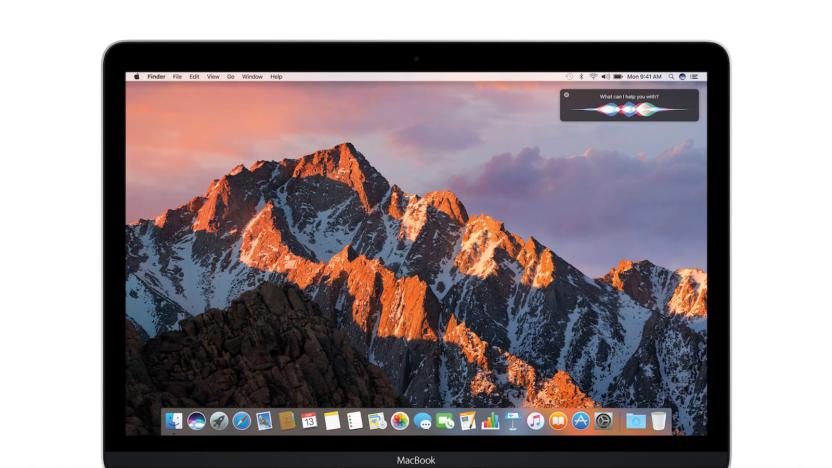
Apple updates macOS and iOS to address Spectre vulnerability
Just a few days after Apple disclosed how it would be dealing with the Meltdown bug that affects modern computers, it's pushed out fixes for the Spectre exploit as well. iOS 11.2.2 includes "Security improvements to Safari and WebKit to mitigate the effects of Spectre," the company writes on its support page, while the macOS High Sierra 10.13.2 Supplemental Update does the same for your Mac laptop or desktop. Installing this update on your Mac will also update Safari to version 11.0.2.
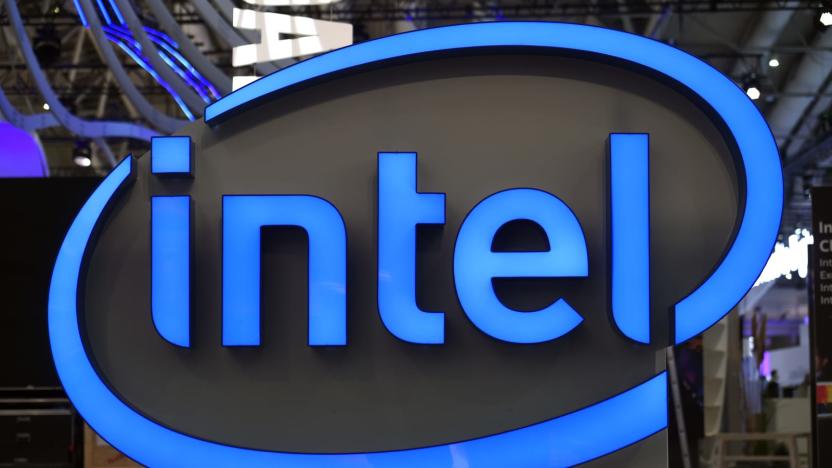
Intel says it will patch 90 percent of recent chips by next week (updated)
A little more than a day since Google Project Zero went public with its findings regarding a major security flaw in Intel (and others) chip designs, the company announced that it is already is pushing out patches to eliminate the vulnerability. Intel has "already issued updates for the majority of processor products introduced within the past five years," per the company press release, and expects to have 90 percent of affected chips produced within the past five years patched by the end of the week.

Intel says memory security issue extends beyond its own chips (updated)
That major security flaw attributed to Intel chips might not be so Intel-specific after all. After hours of silence, Intel has posted a response denying some of the claims about the exploit, which is believed to revolve around identifying content in an operating system kernel's protected memory space. The chip giant shot down reports that the issue was unique to its CPUs, noting that it's working with AMD and ARM (not to mention multiple OS makers) to create a solution -- sorry, you're not safe because you have a Ryzen rig. It also reminded people that the performance hit of the fix would be "workload-dependent," and shouldn't be noticeable for the "average computer user."

Apple apologizes for confusion over slowdowns with older iPhones
Apple has been in hot water for the last few weeks after the company admitted that it sometimes reduced processor speeds on iPhones with aging batteries as a way to balance performance and battery life. Today, the company is apologizing for not being more transparent with its customers and released more details on how exactly iOS manages battery and performance. For starters, the company says that "we have never — and would never — do anything to intentionally shorten the life of any Apple product, or degrade the user experience to drive customer upgrades." That's been perhaps the biggest point of contention among unhappy owners who feel that Apple has reduced their phone's performance as a way to drive more sales.

Apple says slower performance of older iPhones is intentional
You're not alone if you've noticed a slowdown in the performance of your older iPhone. The thing is, it may be more related to your battery than the phone itself. After a post on Reddit and a followup by benchmarking software Geekbench's founder, Apple told TechCrunch that it released a fix for premature shutdowns last year for iPhone 6, 6s and SE by smoothing out CPU demand when a battery is older, cold, or just low on juice. Apple also said that it recently extended this slowdown feature to iPhone 7 devices running iOS 11.2, and plans to "add support for other products in the future."
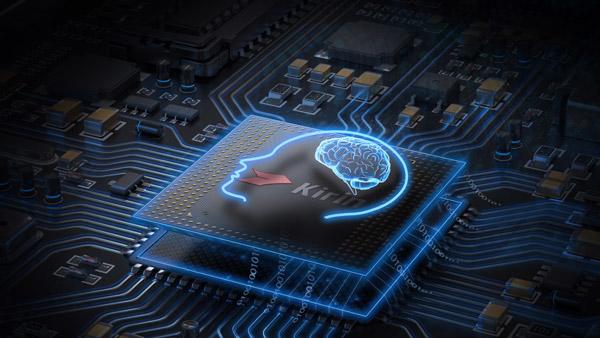
What do made-for-AI processors really do?
Tech's biggest players have fully embraced the AI revolution. Apple, Qualcomm and Huawei have made mobile chipsets that are designed to better tackle machine-learning tasks, each with a slightly different approach. Huawei launched its Kirin 970 at IFA this year, calling it the first chipset with a dedicated neural processing unit (NPU). Then, Apple unveiled the A11 Bionic chip, which powers the iPhone 8, 8 Plus and X. The A11 Bionic features a neural engine that the company says is "purpose-built for machine-learning," among other things.

Why Qualcomm’s Tech Summit this week mattered
Qualcomm had so much news to share this year that it decided to throw a three-day "Tech Summit" in Hawaii for hundreds of press and analysts. In addition to unveiling the latest generation of its high-end mobile processor, Qualcomm also announced new Snapdragon-powered laptops from HP and ASUS, a new dedicated Hi-Fi audio DAC and a partnership with AMD. Speaking of partnerships, many of the companies that work with Qualcomm also attended the event to discuss the future of technologies like AI, 5G, AR and VR.
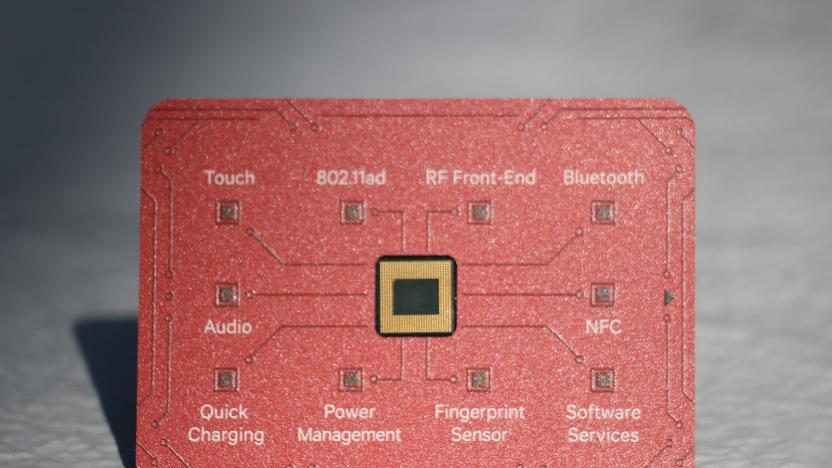
Qualcomm's Snapdragon 845 doubles down on cameras and AI
The next-generation mobile processor that you'll most likely find in many of next year's major flagships is here. At its second annual tech summit today, Qualcomm unveiled the Snapdragon 845, which is its latest "premium" mobile CPU. The chipset will retain the same 10nm footprint as its predecessor, but feature revamped architecture that brings about new features like 4K HDR video capture on smartphones and improved AI processing. That's in addition to the typical performance and power-consumption upgrades we see each year. Qualcomm said it's focusing on AI, immersion, security, connectivity and performance with the new chipset.
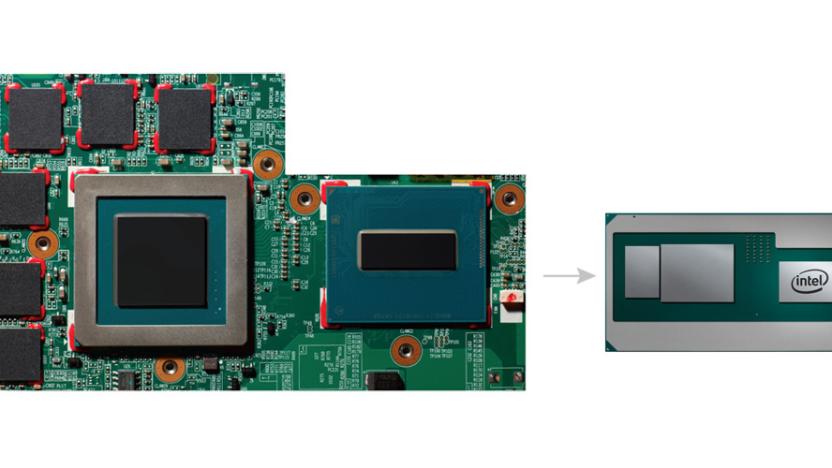
Intel squeezed an AMD graphics chip, RAM and CPU into one module
Intel may have unveiled its latest Core CPUs for mainstream laptops, but the company has something more advanced up its sleeves for what it calls its "enthusiast" customers. The new chip will be part of the 8th-generation Core H series of processors, and comes with discrete-level graphics cards built in, as well as its own RAM. Having all this built into the processor frees up space for other components inside a laptop, so device manufacturers can squeeze in things like larger batteries or more optimal fan designs. Intel is not sharing performance details for the new CPUs yet, but it's promising power that will be good enough for gamers or content creators who often run taxing programs like Adobe Photoshop and Lightroom.
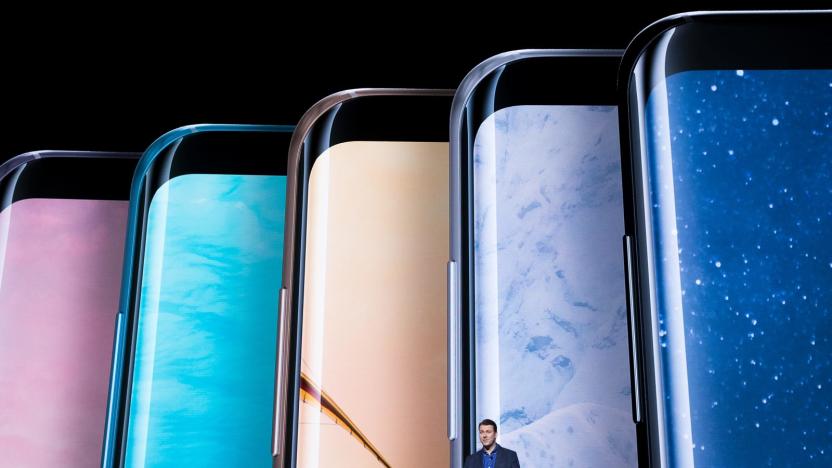
Qualcomm's new chip brings ultra-wide screens to mid-range phones
Ultra-wide screens are hot stuff on smartphones these days, but there still isn't a whole lot of choice: you tend to either spring for the high end or make do with budget models. Where are the in-between options? Qualcomm might just help. It's introducing the Snapdragon 636 processor, an upgrade to the mid-tier 630 whose centerpiece is support for extra-tall FHD+ resolution (roughly 2,160 x 1,080) screens. You should get a reasonably speedy, dramatic-looking phone without making your bank account cry for mercy. It supports Assertive Display, too, so you can expect better visibility in less-than-ideal lighting.

iPhone X may pack a 6-core processor
This weekend's huge iOS 11 leak continues to spill the beans on the iPhone X... and the latest tidbits may be particularly relevant to performance junkies. Twitter user Longhorn has found that the processor in the iPhone X, and likely the step-down iPhone 8 models, will be a six-core chip. It's not clear how many of these will be higher-powered cores versus energy-saving secondary cores (Longhorn suspects only two are high-speed cores), but it looks as if they might all be usable at the same time. That would be a big step up from the A10 Fusion in the iPhone 7, which only allows the high- or low-speed cores to run at any given moment.

Huawei's next mobile chipset is ready for our AI-powered future
A big part of Huawei's multi-year push to improve its image has been improving the hardware it builds to go inside them, and its latest processor is more than up to the challenge. Unveiled today at IFA 2017, the Kirin 970 chipset goes beyond the initial machine learning implementation of previous designs and is ready to be an AI processing powerhouse. Earlier this year Huawei introduced "the intelligent phone" with its Mate 9 (pictured above), but the new hardware could help fix some annoying AI-related drawbacks of the device. While AI work done in the cloud is one thing, on-device AI computation will continue to grow, with the need for sensors to operate without waiting to send any information back and forth over wireless connections. Native AI processing will enable faster image and voice recognition, as well as "intelligent photography." A few people first spotted some specifications at the company's IFA booth, showing that it's sticking to last generation's octa-core setup with four 2.4Ghz Cortex-A73 processors and four 1.8GHz Cortex-A53 cores, but produced using an improved 10nm process instead of the old 12nm.
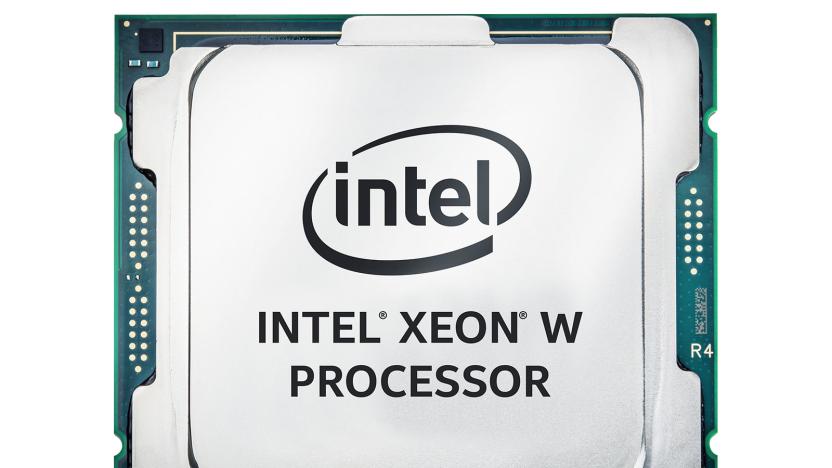
Intel's 18-core Xeon CPU may be destined for the iMac Pro
There's been a lot of speculation about which Xeon chips the upcoming iMac Pro will use, but Intel may have just revealed the answer. During IFA, it unveiled the Xeon W-series lineup aimed at high-end, single-CPU, mainstream graphics workstations. Intel didn't say that the iMac pro would use the chip, but the stars line up: The flagship Xeon W has 18 cores and is due by Q4 2017, and Apple promised that iMac Pros with up to 18 cores would arrive this December.
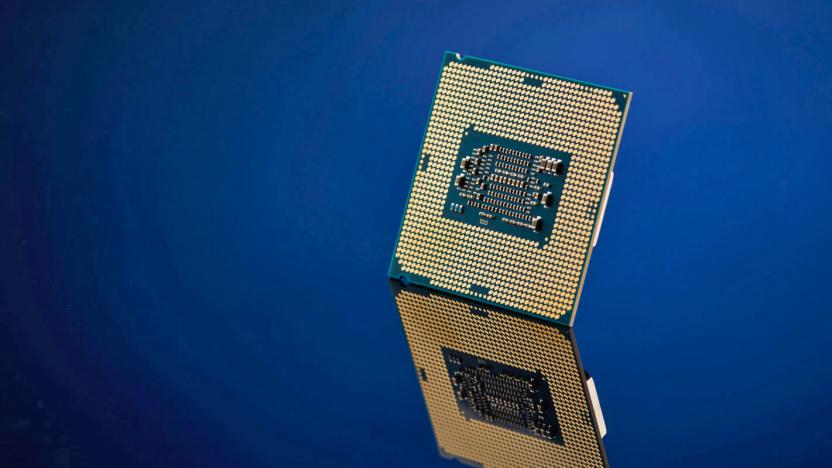
Intel's second 10-nanometer chip architecture is Ice Lake
Intel still hasn't shipped its first 10-nanometer processors, but that isn't stopping it from teasing the next batch. The company's codename page has revealed Ice Lake, a series of chips built on a "10 nm+" (read: iterated 10nm) process. There's virtually nothing else known about it at this point, but AnandTech speculates that this will be the more comprehensive 10nm launch. The initial architecture, Cannon Lake, may be focused on mobile CPUs that are smaller and thus easier to make when chip yields are relatively poor. Ice Lake would come once yields are relatively stable and can handle bigger desktop-class parts.
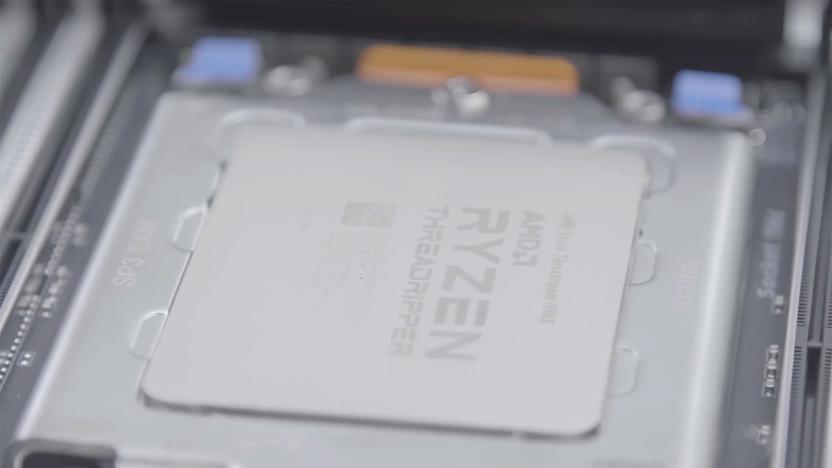
AMD’s beastly 16-core Ryzen Threadripper CPU is available today
We already knew a lot about AMD's monstrous $1000 16-core 1950X Threadripper CPU (and slightly cheaper 1920X $800 12-core version), but the company released a few more details as the processors went on sale today. AMD is adding a third to the lineup: The 1900X is an 8-core, 16-thread version for $550 that'll be out on August 31st for anyone who wants a powerful budget CPU with a base clock speed of 3.8 GHz and boost of 4.0 GHz.
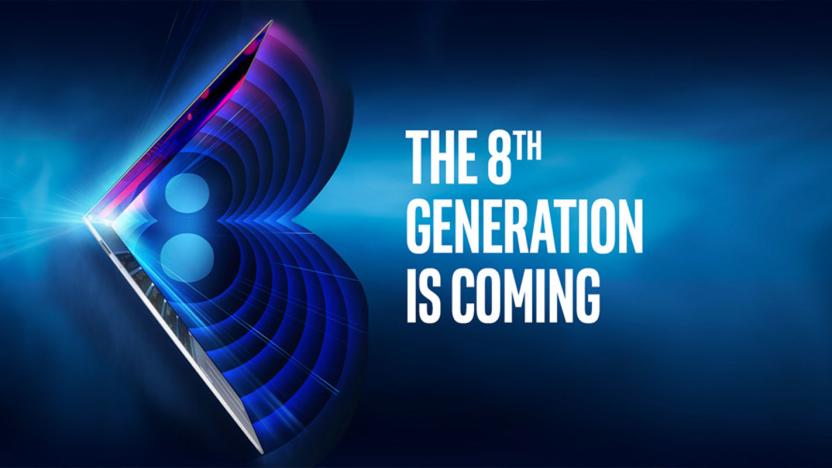
Intel will unveil 8th-gen Core processors on August 21st
Intel's 7th-generation Core processors still feel relatively young, but the company is already poised to talk about their successors. The chip designer has announced that it will premiere its 8th-generation Core CPUs on August 21st, complete with a livestream on Intel's Facebook page. The company is unsurprisingly shy on technical details, but it promises previews of PCs built on 8th-gen chips as well as a demo from a VR creator. As it stands, there's already some idea of what to expect.

AMD returns to high-end gaming graphics with Radeon RX Vega
AMD has been content to cater to budget gamers with its graphics cards over the past couple of years, but it's ready to play in the big leagues once again. After plenty of leaks and no shortage of hype (Apple even name-dropped AMD at the iMac Pro debut), the chip giant has unveiled GPUs based on its high-end Vega architecture. The Radeon RX Vega series touts processors with numerous tweaks that promise to finally give AMD performance comparable to NVIDIA's higher-end offerings, including updated geometry and pixel engines, a high-bandwidth cache controller and support for multiple data operations per cycle. Overall, Vega promises twice the throughput per clock cycle and twice the memory bandwidth per pin of earlier Radeon hardware -- not the highest bar to clear given AMD's recent lack of top-end cards, but still a huge improvement.
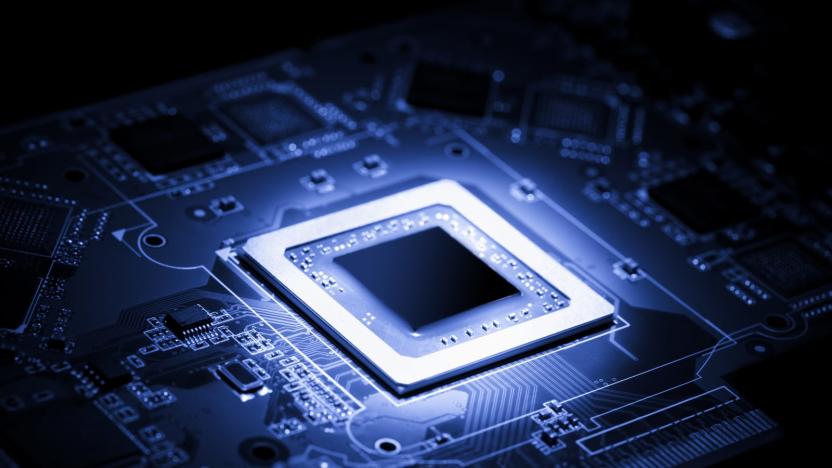
Ever-changing memory could lead to faster processors
Virtually every central processor in your devices uses a tiered set of memory caches to speed things up by fetching commonly used data. But it's not very efficient -- in trying to accommodate everything, it's rarely the fastest at anything. MIT's CSAIL researchers want to fix that. They've developed a cache system (appropriately named Jenga) that creates new cache structures on the spot to optimize for a specific app. As Jenga knows the physical locations of each memory bank, it can calculate how to store data to reduce the travel time (and thus lag) as much as possible, even if that means changing the hierarchy. Whether an app would benefit from multiple cache levels or one gigantic cache, this system would be ready.








